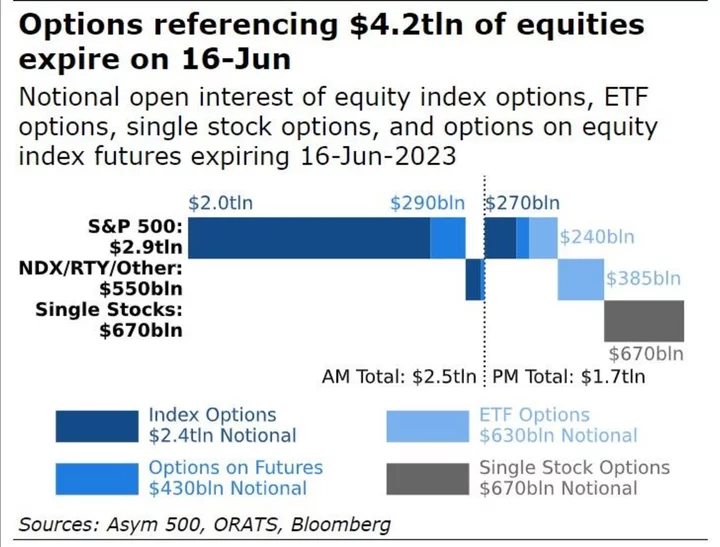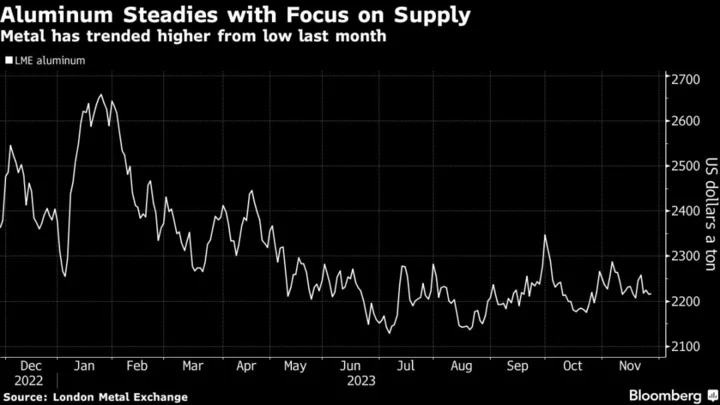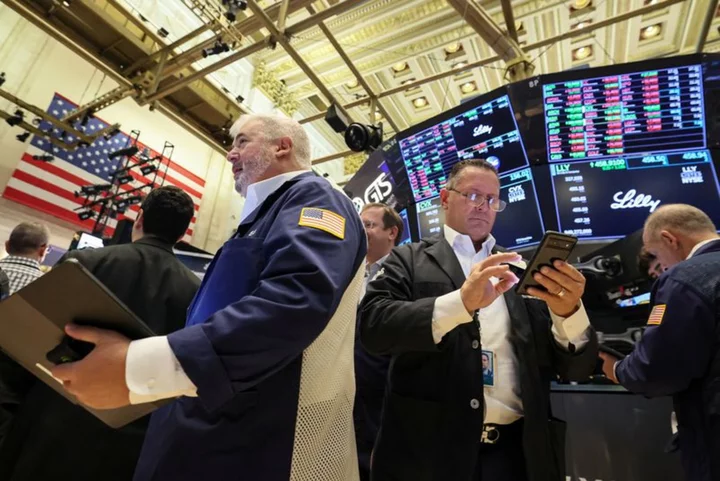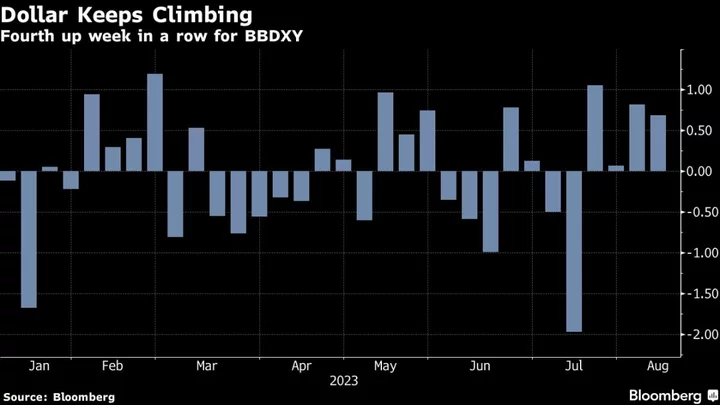The gravity-defying bull market is handing stock investors a fresh conundrum as an unusually big pile of options expires Friday: Chase gains via bullish derivatives or hedge with bearish bets?
It’s a decision traders face every month, but the stakes are higher this time. About $4.2 trillion of contracts tied to stocks and indexes are scheduled to mature, according to an estimate by Rocky Fishman, founder of derivatives analytical firm Asym 500. That’s 20% more than a year ago.
The event known as OpEx generally sees Wall Street managers either roll over existing positions or start new ones. This month it also happens to coincide with the quarterly expiration of index futures and the rebalancing of benchmark indexes including the S&P 500. The process is ominously dubbed triple witching and is known for causing spikes in trading volume as well as sudden price swings.
To Matthew Tym, the head of equity derivatives trading at Cantor Fitzgerald LP, traders are likely to roll out their call positions, particularly those that are still out of the money. But the overall event’s impact on the broader market is hard to predict.
“People are under-invested and need to get exposure,” he said. “There is a tremendous amount of options coming off tomorrow. However, I don’t have a good feel for what that does to the market.”
With valuations stretched and recession fears lingering, a case can be made that protection in the derivatives market is warranted. In the latest Bloomberg survey of sell-side strategists, the average year-end target calls for a more than 7% drop for the S&P 500. At the same time the cost of options hovers near a three-year low by one measure.
Yet the eight-month equity advance has defied all the naysayers, driving the benchmark beyond a 20% threshold that in some corners is viewed as pronouncing a new bull run. Defensively positioned investors have sought to play catch-up using call options tied to recent leaders such as technology megacaps and small caps.
In fact the options market, originally seen as a place to make side bets on stocks, has become so big that it’s affecting the underlying equity landscape. To some derivatives experts, the recent investor rush for calls and unwinding of their previous put positions have added fuel to the latest leg up in the broad market.
US futures were little changed after the S&P 500 climbed more than 1% Thursday, extending its June rally to 6%. Up six straight sessions in a row, the benchmark just scored its longest winning streak since November 2021. Helping bolster the market was options dealers who bought back deep-in-the-money calls before Friday’s expiry and then sold new contracts for the next month, a process that required them to purchase stocks as a hedge, according to Dave Lutz, head of ETFs at JonesTrading.
“Leading in, big up months create a ton to buy, concentrated in the last hour of the session,” he said.
The hedging process is complicated, but it works roughly like this: When a dealer sells a call option, they’re essentially making a bet on the underlying asset to go down. To offset this unwanted directional risk, the dealer typically buys some of the asset to maintain a neutral position.
A similar dynamic is true for puts, which were in demand during the banking turmoil and a near-crisis around the US debt ceiling. Earlier this year, market makers who had sold puts needed to dump equities to hedge their exposures. Now as these events passed without any real damage and as investors unwound those wagers, dealers needed to reverse their hedging moves — buying stocks instead to create a tailwind for the broader market.
Now the mood is shifting once again on Wall Street, particularly with the optimism over artificial intelligence and companies like Nvidia Corp. that’s at the center of the innovation.
“Just a few months ago I recall the overwhelmingly bearish consensus from investors. Bears are doing soul-searching,” said Amy Wu Silverman, head of derivatives strategy at RBC Capital Markets. “When did the inflection begin? Better economic data, blow-out earnings from NVDA or perhaps just that familiar feeling from those under-allocated that the train is leaving the station.”
--With assistance from Sam Potter.
(Updates with US futures trading)









